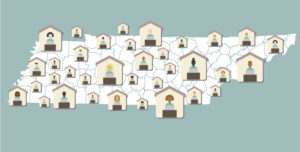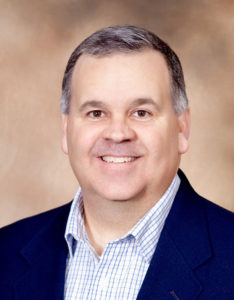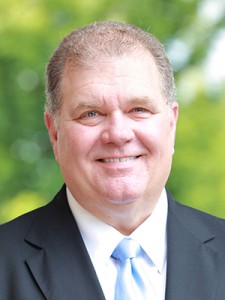By Lonnie Wilkey
[email protected]
 FRANKLIN — The board of directors of the Tennessee Baptist Mission Board made history April 21 — and they didn’t even have to leave home.
FRANKLIN — The board of directors of the Tennessee Baptist Mission Board made history April 21 — and they didn’t even have to leave home.
Thanks to technology, COVID-19 did not wipe out the scheduled April meeting of the TBMB as an overwhelming majority of the board member joined a Zoom broadcast.
“This is a historical moment,” acknowledged Randy C. Davis, president and executive director of the TBMB.
Davis informed the board members that the meeting was primarily an informational meeting and that no action would be taken at this time. “We didn’t want to bring anything to the board to vote on at this time simply because we want to make sure that we have the capability electronically to do it in a manner that is in order.”
Board chair Clay Hallmark, pastor of First Baptist Church, Lexington, called the meeting to order and opened with a devotion and prayer. Noting that the current pandemic has the nation overwhelmed, he encouraged board members to accept help from friends, to rely on faith not fear and to focus on what is eternal. “The problems of the coronavirus are temporary but we need to focus on what’s eternal as people of God.”
Bruce Chesser, president of the Tennessee Baptist Convention and senior pastor of First Baptist Church, Hendersonville, also provided encouragement. “Don’t lose hope,” he said.
He reminded board members that they have a role in encouraging churches “to stay faithful to supporting our larger work as Tennessee Baptists” and to support and pray for the staff of the Tennessee Baptist Mission Board as they serve churches.
During his report to the board, Davis updated directors on budgetary matters, disaster relief and response to the COVID-19 crisis.
Citing the tornadoes that swept through Tennessee in early March and on Easter Sunday and the coronavirus pandemic, Davis said, “I don’t think it’s an understatement to say that we have faced unparalleled challenges.
“There have been few challenges like the ones we are facing in our lifetime. But I would also hasten to say that these are unparalleled opportunities,” he continued.
Though churches are not meeting in person, Davis said he is convinced that “more people are hearing the gospel of Jesus Christ over the past five or six weeks than anytime in the history of Christianity in North America. … I don’t know what the harvest is going to be, but I think there’s going to be an incredible harvest from all that has gone on.”
Davis told board members that the TBMB staff is working based on the principle that “we serve churches. It is all about the church,” he stressed. “The number one overriding thought is what can we do to help our churches survive?”
The TBMB leader noted that so far the work during the pandemic has been divided into at least three phases. An important element of the phases is contact with every church in the convention. All 3,200 churches have been contacted at least once with more than 2,000 of those receiving personal phone calls, Davis related. A second round of contacts is currently underway, he added.
Davis also shared some specifics that have been initiated such as the Macedonian Church Crisis Loan Fund to assist smaller churches and associations with budgets under $400,000 and a prayer hotline for people in need of prayer and conversation with a disaster relief chaplain (see story on page 1).
Davis and William Maxwell, administrative director for the TBMB, outlined budget issues as the convention is preparing for shortfall in Cooperative Program contributions due to the economy and lack of revenue from events that have had to be cancelled because of COVID-19. As of now, Maxwell said, current gifts are a half percent ahead over the same time frame last year.
During a question and answer time with directors, the question of reopening churches arose. Davis said the TBMB will release a document that will pose questions and items for churches to consider as they reopen (see pages 8-9). He also noted the document will be updated as more information is released by the governor’s office.
Davis encouraged church leaders to listen to health care professionals. “One of the worst things that could happen is that we reopen our churches, which are the largest gathering point in some communities, and cases of the coronavirus rise again.” B&R


